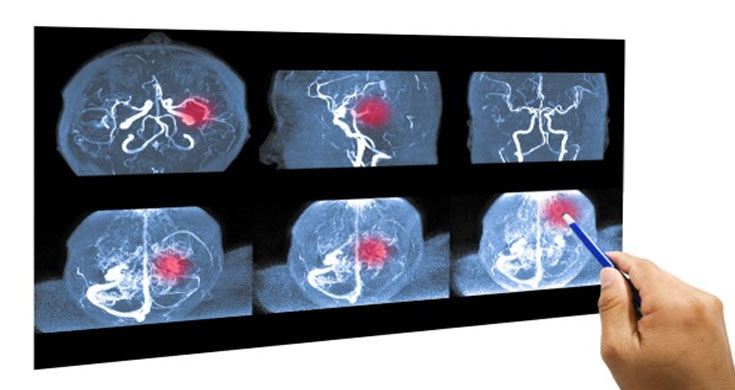
What is Cerebral Angiography
Diagnostic Cerebral Angiography (DSA) is a procedure done to investigate various abnormalities of the brain's blood vessels. A catheter is placed in the selected blood vessel to perform DSA, while a rapid set of X-rays are obtained, much like time-lapse photography. It is the most accurate method to identify and define aneurysms, arteriovenous malformations, carotid stenosis, and many other diseases of the blood vessels supplying the central nervous system. To provide maximum comfort to the patient, conscious sedation and local anaesthesia is given before the catheters are placed. Most patients undergoing diagnostic angiography need to stay in the hospital for 3 to 6 hours after the procedure. Prior to discharge, the physician ensures that the patient is in good health.
Digital subtraction angiography, or intra-arterial digital subtraction angiography, is another name for cerebral angiography (IADSA). To perform cerebral angiography, it is common practice to introduce a catheter (a long, narrow tube) into an artery in the arm or leg. Cathode-based injections of a particular dye are used to access the brain’s blood arteries via the catheter. Cerebral angiography uses X-rays to look for anomalies in the brain’s blood artery network.
Cerebral angiography treatment is more accurate than a carotid Doppler. In most cases, angiography is done after another test has discovered an abnormality. The use of angiography in detecting and diagnosing acute stroke is essential. Other procedures cannot produce the same kinds of images as cerebral angiography.
Uses
There is no need to perform a cerebral angiography in Delhi on everyone at risk for vascular occlusion. However, it’s only used if previous tests have shown insufficient data to make an informed treatment decision. Invasive and potentially dangerous, it’s why.
This procedure can also be employed to treat neck and brain blood vascular disorders. Aneurysm, arteriovenous malformation, arteriosclerosis, vasculitis, brain malignancies, clots in the bloodstream, and arterial wall tears can all be diagnosed with cerebral angiography.
The results of a cerebral angiography may assist your doctor in determining the underlying cause of the following symptoms:
Preparation is key
Consult Doctor Tariq Matin for advice on the best way to get ready. After midnight on the night before the procedure, you may not be able to consume any food or drink at all.
Your doctor may also urge you to stop taking any medications that raise your risk of bleeding before the procedure. Blood-thinning medication, analgesics, such as aspirin and ibuprofen
Don’t breastfeed again for at least 24 hours after the surgery if you’re breastfeeding. During this period, your body will have time to expel the contrast material.
